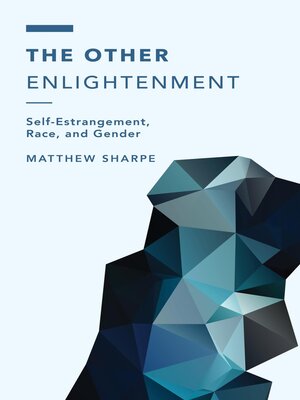The Other Enlightenment
ebook ∣ Self-Estrangement, Race, and Gender · Off the Fence: Morality, Politics and Society
By Matthew Sharpe

Sign up to save your library
With an OverDrive account, you can save your favorite libraries for at-a-glance information about availability. Find out more about OverDrive accounts.
Find this title in Libby, the library reading app by OverDrive.



Search for a digital library with this title
Title found at these libraries:
| Library Name | Distance |
|---|---|
| Loading... |
Challenging widespread misunderstandings, this book shows that central to key enlightenment texts was the practice of estranging taken-for-granted prejudices by adopting the perspective of Others.
The enlightenment's key progenitors, led by Montesquieu, Voltaire and Diderot, were more empiricist than rationalist, and more critical than utopian. Moreover, each was an artful exponent of the 'proto-postmodernist' practice of asking Europeans to review what they considered unquestionable through the eyes of Others: Persians, women, Tahitians, Londoners, natives and naïves, the blind, and even imaginary extra-terrestrials. This book aims to show that this self-estrangement, as a means to gain critical distance from one's taken-for-granted assumptions, was central to the enlightenment, and remains vital for critical and constructive sociopolitical thinking today.
The enlightenment's key progenitors, led by Montesquieu, Voltaire and Diderot, were more empiricist than rationalist, and more critical than utopian. Moreover, each was an artful exponent of the 'proto-postmodernist' practice of asking Europeans to review what they considered unquestionable through the eyes of Others: Persians, women, Tahitians, Londoners, natives and naïves, the blind, and even imaginary extra-terrestrials. This book aims to show that this self-estrangement, as a means to gain critical distance from one's taken-for-granted assumptions, was central to the enlightenment, and remains vital for critical and constructive sociopolitical thinking today.







